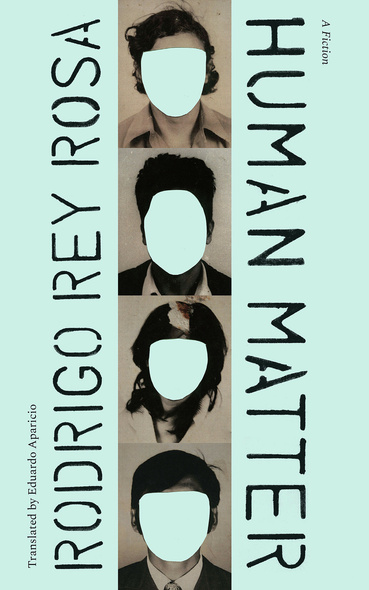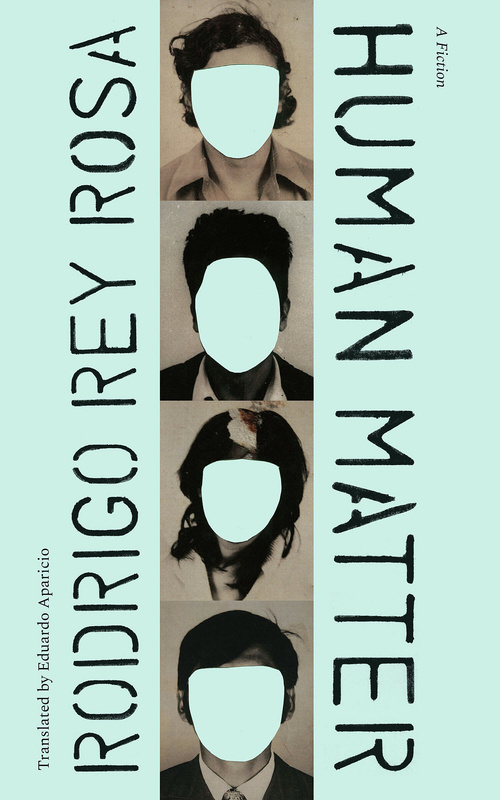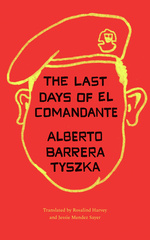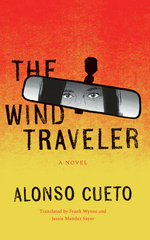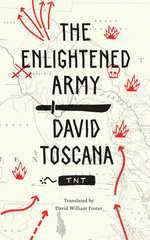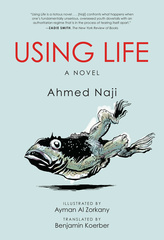Human Matter
A Fiction
More than a decade ago, novelist Rodrigo Rey Rosa made his first visit to the Historical Archive of the Guatemala National Police, where millions of previously hidden records were being cataloged, scanned, and eventually published online. Bringing to light detailed evidence of crimes against humanity, the Archive Recovery Project inspired Rey Rosa to craft a meta-novel that weaves the language of arrest records and surveillance reports with the contemporary journal entries of a novelist (named Rodrigo) who is attempting to synthesize the stories of political activists, indigenous people, and other women and men who became ensnared in a deadly web of state-sponsored terrorism.
When Rodrigo's access to the archive is suspended, he proceeds to the General Archives of Central America and the Library of Congress, also collaborating with the son of the Identification Bureau's former head in a relentless pursuit of understanding. Reminiscent of Roberto Bolaño's finely honed masterworks, Human Matter is both a tour de force of fiction and a sobering meditation on the realities of collective memory, raising timely questions about how our history is recorded and retold.
Originally published in Spanish in 2009, its success demanded a subsequent publication in June of 2017.
[Human Matter's] exploration of the history of violence and secrecy in Central America has obvious relevance to today's politics, but the tale of a writer trying to understand the truth behind the things he's seeing gives the novel a resounding, universal echo.
Had Rey Rosa written a nonfiction account of what he learned from the missing-persons files [in the Historical Archive of the Guatemala National Police], it likely would have been gripping in its own right. Instead, Rey Rosa wrapped his real-life search in a fictionalized container, and the results are haunting and revelatory in ways that nonfiction couldn’t accomplish.
Few books got under my skin in 2019 the way Rodrigo Rey Rosa's Human Matter did. Were it simply a meditation on memory, loss, and the way historical crimes can become part of the atmosphere, that would have been enough. But the ways in which the narrative blurs the lines between fiction and nonfiction ultimately adds to its thematic resonance; this is a novel that refuses to be easily dismissed as fiction, and it may well prompt some readers to wonder about their own compromises and complicities.
Secrecy lies at the heart of the story, manifesting itself in many ways…Of a piece with the author's Dust on Her Tongue (1992) as an exploration of political violence and its troubling reverberations.
Human Matter makes the non-Latin American reader ask herself things that she…would not have otherwise. It delicately illuminates some of the pressure points of Guatemalan intellectual history and introduces a number of roles that have obsessed the country: the Indian, the police officer, the informer, the turncoat.
Rey Rosa, a Guatemalan writer often compared to Roberto Bolano…was inspired to write a meta-novel about his experiences [visiting Guatemala's National Police archive] and the stories he uncovered. The result…reads like the journal of a heartbroken researcher who stumbles on the darkest truths about his native country.
Political violence in Guatemala—past and present—and how it filters into the life of one of its citizens drives this short, intense novel...By the end of this novel you feel glad to have come out on the other side and carry the hope that Rodrigo Rey Rosa, those close to him, and his fellow countrymen will do so, too.
Rodrigo Rey Rosa’s fiction veers from the surreal to the naturalistic to the speculative. In his newly-translated novel Human Matter, he opts for a foray into (recent) history: the novel was inspired by his visits to the Historical Archive of the Guatemala National Police, and the disquieting information he discovered there
Human Matter is no conventional thriller—Rey Rosa doesn’t stop sharpening the self-referential, autofictional knife long enough to cut that kind of drama. The drama, rather, subsists in the writer’s internal struggle to come to terms with the hideous history of a country he has always had the privilege to escape, but which is nevertheless his own.
Required reading for anyone who is interested in how we remember and record the events that so many of us call 'history.'
A quite effective presentation of the near-recent Guatemalan conditions and circumstances, with the odd (im)balance of the near-normalcy of the everyday along with the ever-shifting and still ominous weight of a deeply-entrenched violent history.
[An] intricately patterned novel…[Human Matter] leads the reader into the maze of its confidences with great assurance.
What makes Human Matter so wonderful is the way that it is constantly in dialogue with itself about what can be understood from the information Rey Rosa is giving…The tension between the fundamental pleasure of the novel –– which comes from trying to piece together meaning out of the disparate information available to us and the narrator’s insistence that it’s futile –– creates a weirdly gratifying reading experience. Reader and narrator then are engaged in similar journeys of discovery: ours is a fight with him and the narrator’s a fight with himself.
An exercise in the resilience of human memory, [Human Matter] integrates a broad swath of literary and global cultural touchstones that situate it as a novel that is simultaneously a great work of uniquely Guatemalan literature and a masterful piece of world literature.
What makes Rey Rosa different from other practitioners of [autofiction] is his willingness to interrogate reality. He is less navel-gazing and more outward-looking: Rey Rosa might have been to the Archive in real life, but he's less interested in himself as a person and more interested in making sense of history...Though he reaches no conclusion, Rey Rosa highlights the contradictions and complexities inherent in histories and the way power is wielded to tell us otherwise.
Rey Rosa might have invented a new way for metafiction to feel…For all its trickery, Human Matter effectively thrusts the reader into the tedium and terror of the real.
Rey Rosa’s novel is defined by frailty, the sensation of the uncertain, those small ways of escaping the suffocating Central American reality, the distance between what was and what is possible to feel.
Rodrigo Rey Rosa is the author of many acclaimed novels and short-story collections, among them Severina and La orilla africana (The African Shore). He is the recipient of one of Guatemala’s most distinguished literary prizes, the Miguel Ángel Asturias National Prize in Literature, as well as the prestigious José Donoso Prize.
- Introduction
- First Notebook: Modo & Modo
- Second Notebook: Black Binding
- Pages Attached to the Second Notebook
- First Sketchbook: Green Cover with Indian Motifs
- Pages Attached to the First Sketchbook
- Third Notebook: White Cover
- Second Sketchbook: Don Quixote
- Fourth Notebook: Red and Blue Stripes on a White Background
- Pages Attached to the Fourth Notebook
- Third Sketchbook: “Scribe”
- Fourth Sketchbook: Leather Cover, No Branding, No Name
- Fifth Sketchbook: Spanish Binding
- Author’s Note
- Translator’s Acknowledgments

